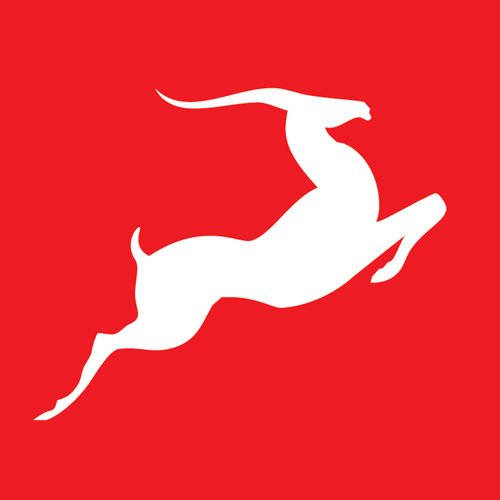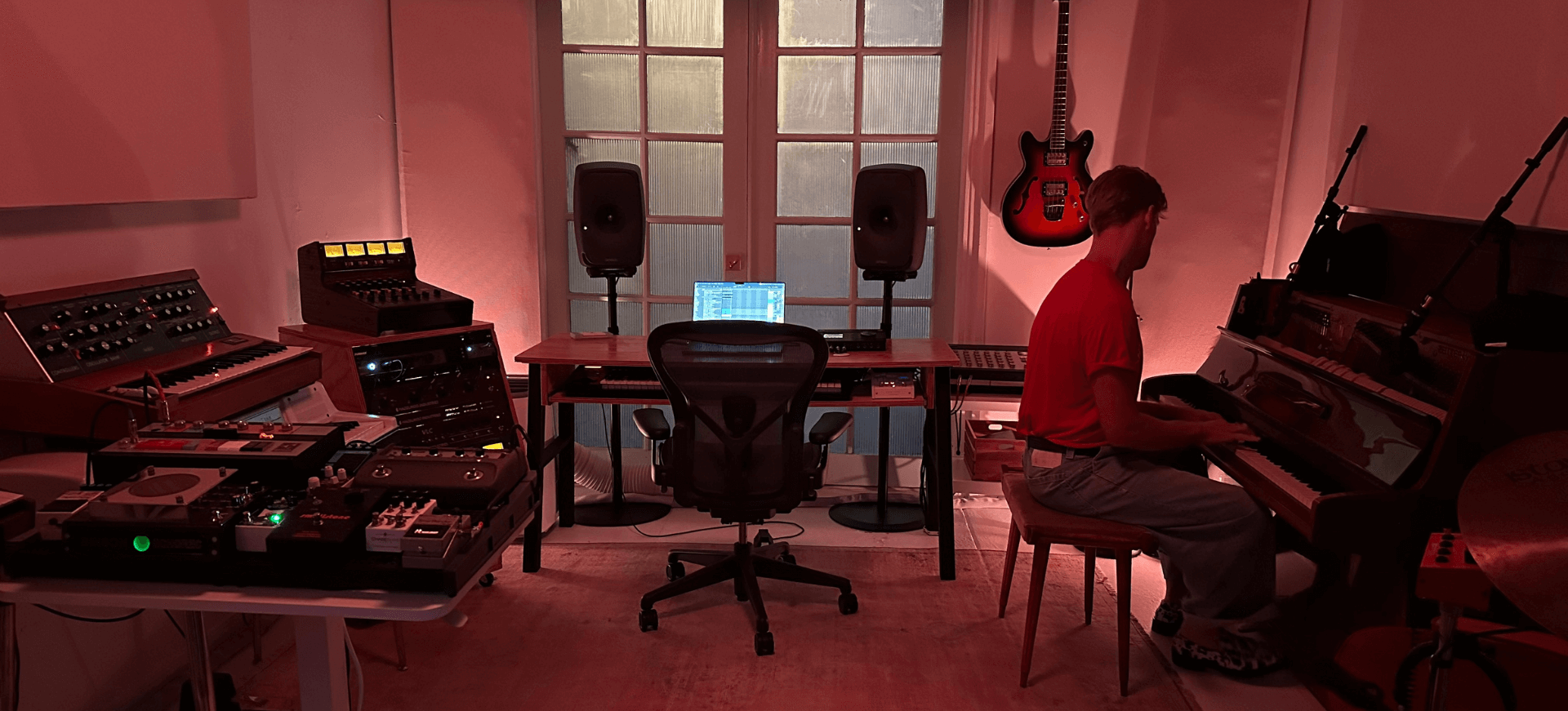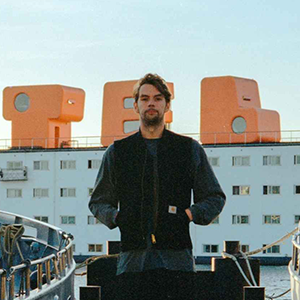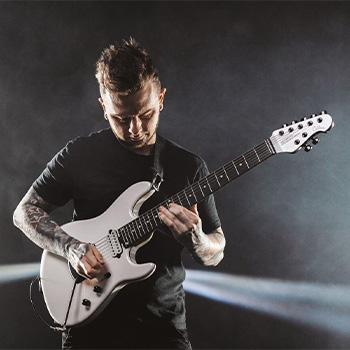Charlie Coffeen is an audio engineer, producer, and multi-instrumentalist. Owner of the Best Friend Studios in Hollywood, California, he has collaborated with artists such as The Weeknd, DJ Khaled, Tyler the Creator.
Antelope Audio sat to have a chat with him about his past, present, and future, and how important it is to have a good foundation in everything you do.
What's your earliest memory of music? Was there a specific song, instrument, or moment that sparked your interest in making music yourself?
I remember being backstage at my mom’s choir rehearsals and humming along to the music. I’m sure that was mostly Beethoven, Bach, and composers like that. I also remember improvising on our piano at home at a very young age and playing the themes to some of the Nintendo games that my older brother was playing. Hearing Jay-Z’s Unplugged album was a big turning point for me because it was the first time I heard jazz and gospel influences being played live with a rapper.
Describe the soundtrack of your childhood home. Were there certain genres or artists that were always playing? Did you have any family traditions that involved music, like singing together or attending concerts?
I remember a lot of Beatles and Bob Dylan in our house, and European orchestral classical music. My brother is 10 years older than me, so I’m sure he was playing a lot of R.E.M., Smashing Pumpkins, and maybe Radiohead. My mom was always in choir so at their rehearsals a lot. The only time my dad really played music in the house was leading up to Christmas. All of those classic holiday songs that I actually love.
Who was your first musical hero, or were there any specific artists or genres that inspired you early on? Did their influence shape the kind of music you create today?
First was probably Chick Corea. I was never really into straight-ahead jazz and the ’70s fusion stuff was (and still is) incredible to me. I was heavily into Herbie and Headhunters albums at that time as well. That led to hip-hop artists like J Dilla and Q-Tip. D’Angelo is probably my favorite artist of all time, and he kind of represents that culmination of everything that I was into when I discovered him. Gospel, jazz, funk, hip-hop. All of that music is so intertwined and it definitely is baked into everything that I make now.
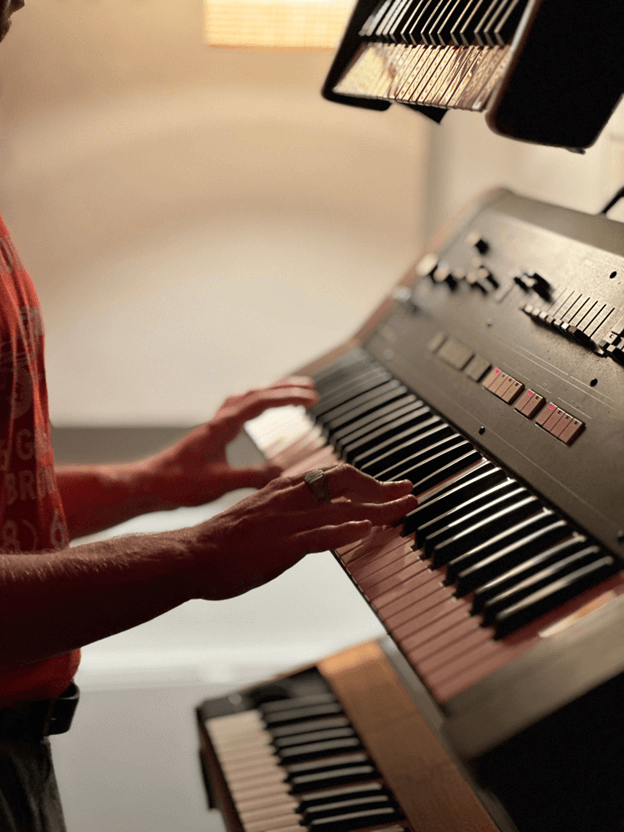
Did you have any formal music training, or were you self-taught? If you did have lessons, what was your favorite instrument to learn and why? Were there any challenges you faced early on in pursuing music? How did you overcome them?
I had piano lessons at a young age and never really loved the lessons themselves. I practiced a lot but always just played my own ideas or played along to my own music. I played drums and mallet instruments first in school, mainly the vibraphone. Even still I think there is something good about being limited in your note choices on an instrument like that. It’s easy to overplay on the piano. My biggest challenge early on was just time. I was really into sports and pretty good at sports, and it was a lot of needing to choose between one or the other. I’m not sure if I ever overcame that or if I just stopped caring. All of the best musicians and artists I know have fascinating lives and explore things outside of music. Playing a sport or painting or cooking or whatever. You have to live life if you want to have something to make music about.
Your musical journey has taken you from early inspirations to working with some of the biggest names in the industry, like DJ Khaled, The Weeknd, and Tyler the Creator. How did the transition from aspiring musician to sought-after producer happen?
Moving to LA was the biggest turning point. I moved in 2019 with no connections or game plan other than to make it work. I connected with the right people after a few months and things fell into place. A big part of that was building genuine connections with people (especially during COVID). Not “networking” or seeing what people can offer you, just showing up as your true self and finding people that you connect with on a personal level. The biggest thing we have to offer is our unique perspective and you need to be around people that value that.
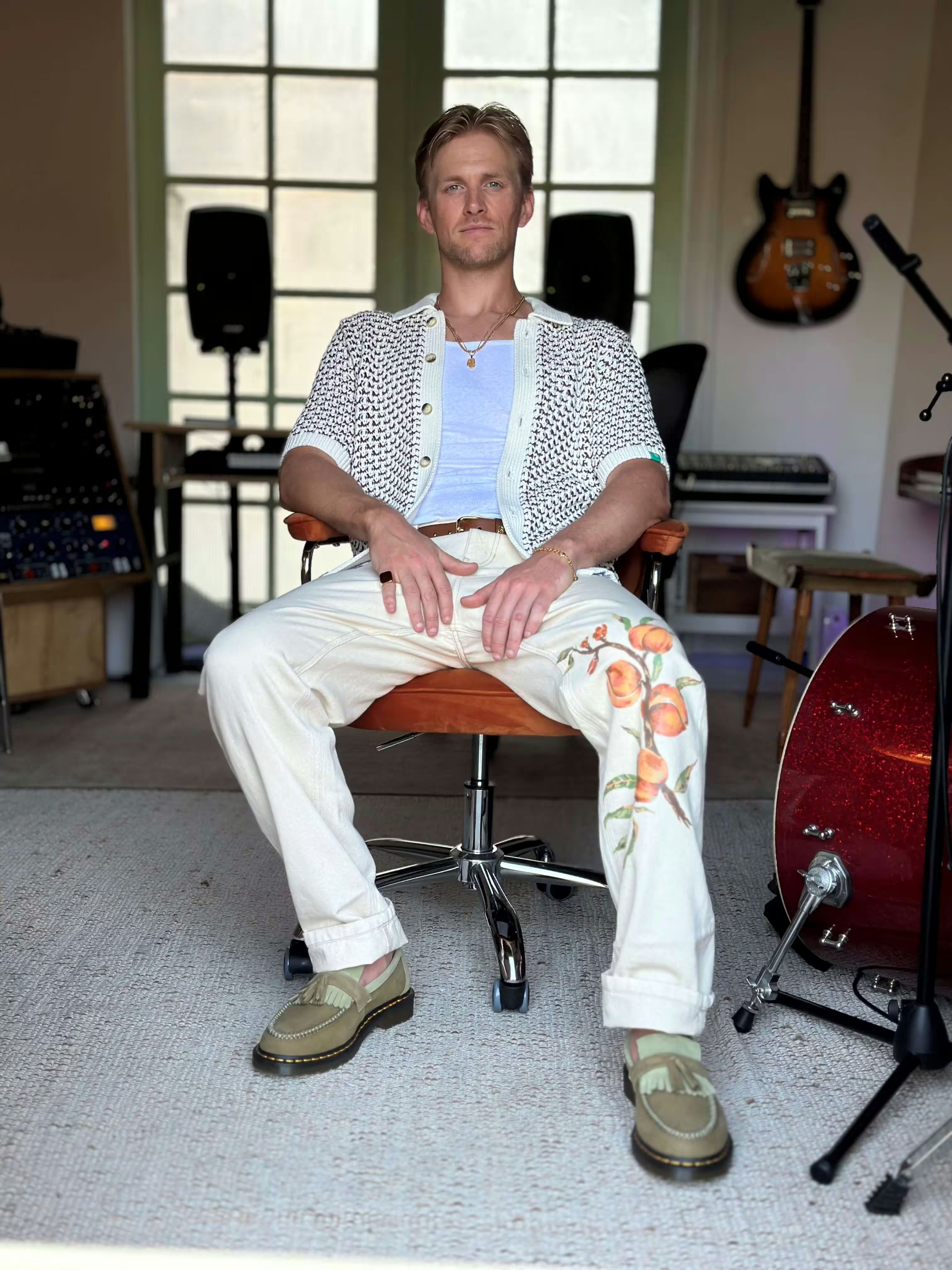
Collaborating with such diverse artists must be a fascinating experience. Can you describe a specific challenge or creative spark you encountered while working with one of these artists? How did you approach it, and what did you learn from the experience?
“Here We Go…Again” for The Weeknd was actually the second song we made that day. The computer crashed the second we finished the first idea and the files were really gone. We couldn’t believe it, but all of us just rolled with it and started a new idea. That song would have never happened if we had gotten frustrated or mad at something that was nobody’s fault and out of our control. For me, that was a lesson in being flexible and rolling with whatever is happening. Especially when you’re creating in the room with other people, your attitude can change everything about the situation. Negativity is contagious. In that situation, it was like, “OK that was great but let’s make something better.”
Antelope Audio offers a comprehensive ecosystem of hardware and software that integrates seamlessly. As someone using both Orion Studio and Zen Tour, can you share with us, how you leverage this synergy within your workflow? Are there specific features or functionalities across the Antelope Audio range that you find particularly advantageous?
I’m essentially using both interfaces as one unit within my DAW, so the Orion Studio and Zen Tour working together flawlessly is critical for my workflow. I also don’t have to worry about latency when recording or degradation of audio quality anywhere along the line with these great converters. In general, I love the layout of the Control Panel and how quick and easy it is to set my preamps routing. Another crucial element is the reamp outputs – those enable me to send anything through the outboard gear that I have, and I have two effects chains running all the time using the reamp outs.
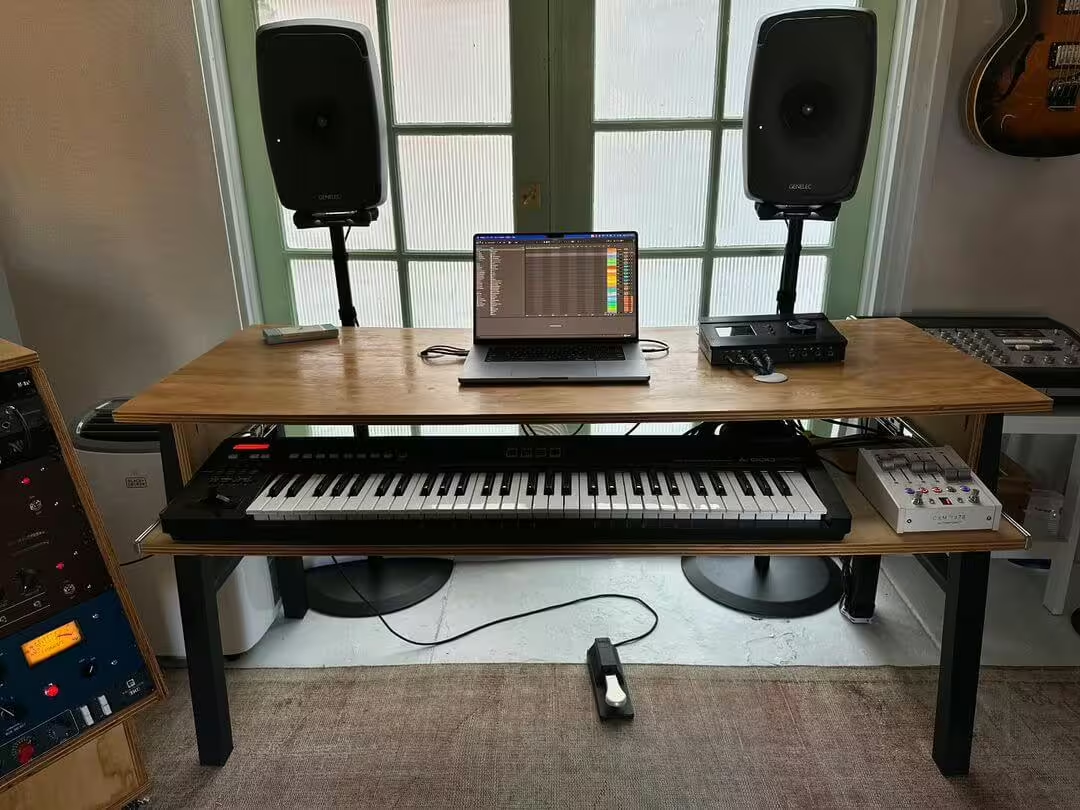
Both the Orion Studio and Zen Tour offer a variety of connectivity options. Can you explain how this versatility, allows you to adapt your setup to different recording scenarios and integrate seamlessly with outboard gear?
I’m currently not using most of the available outputs, but I like the fact that I can expand my outputs soon without needing a patch bay. The Zen Tour is very portable and has more than enough I/O for a remote recording session or writing camp.
As a final to this interview, we would love to ask you something out-of-the-box. If you could curate a dream dinner party with any musicians, living or dead, who would be on your guest list and why?
Nice! Let’s say Prince, D’Angelo, Miles Davis, and Dolly Parton. And Patti LaBelle because she’s a chef.

